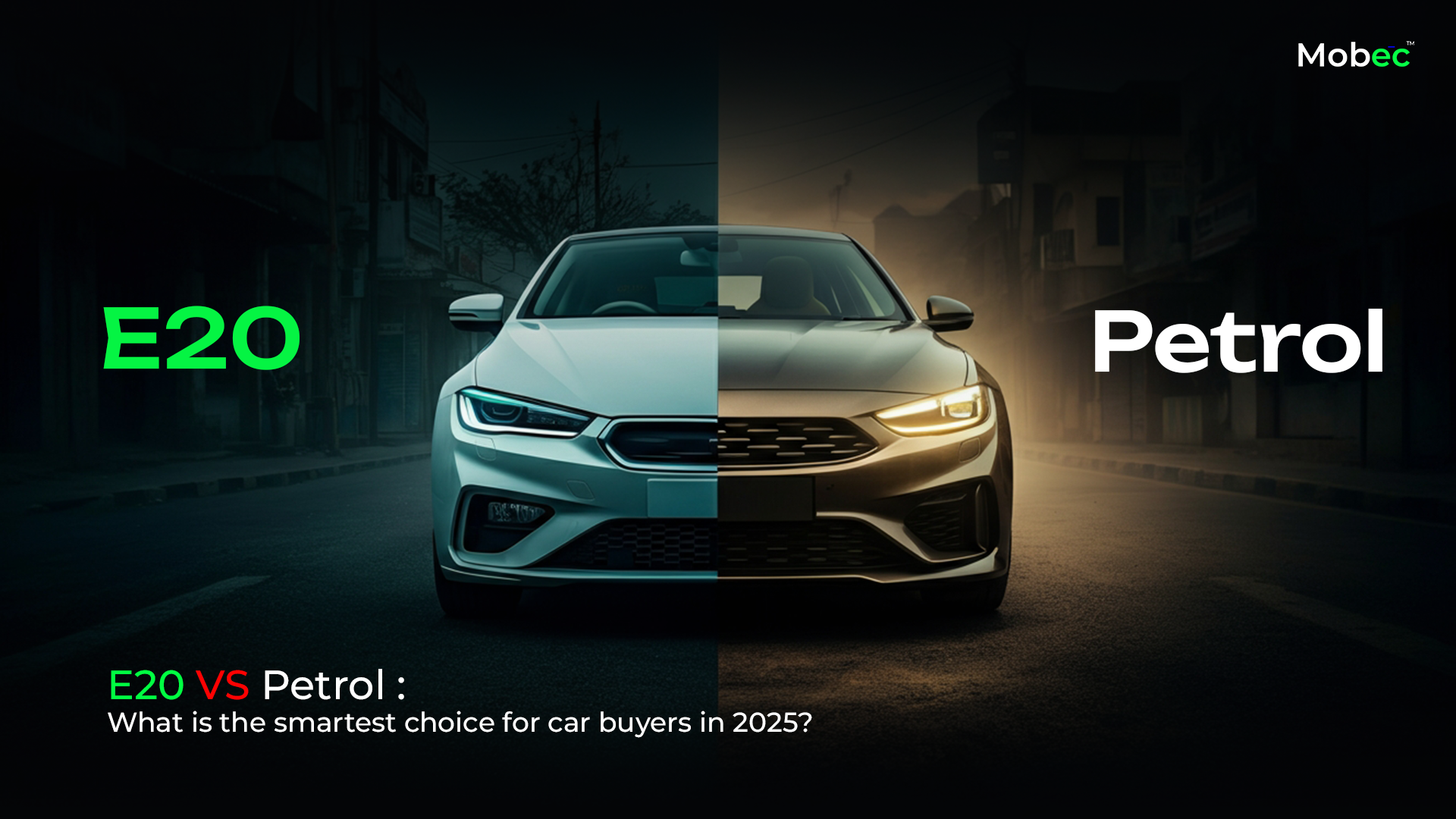For decades, India has been a petrol-and-diesel nation. But with rising fuel prices, climate concerns, and the government’s push for energy independence, that story is starting to change. Over the years, we’ve moved from E5 (5% ethanol blend) to E10, and from 2025 onwards, India is officially stepping into the E20 era.
This means that petrol at your nearest fuel station will now carry 20% ethanol, a cleaner and renewable biofuel mostly derived from sugarcane and grains. The move sounds promising – it’s greener, it supports farmers, and it helps India reduce dependence on imported oil. On papers, this sounds like a perfect solution, but is it that simple?
The big question for anyone planning to buy a new car in 2025: Should you go for an E20-ready petrol car, play it safe with a hybrid, or skip ahead to a full electric vehicle (EV)?
The current options in the market, belongs to:
E20 Cars
E20 is simple – your car runs mostly like a regular petrol car, except the fuel contains 20% ethanol blended with petrol/diesel. This was mainly done to reduce the fuel cost, reduce our dependencies on imports, and also make india’s transition to electric future more practical. For many buyers, that sounded like the easiest option, due to promises made.
The upsides:
- Lower emissions compared to pure petrol.
- Cheaper fuel mix, since ethanol costs less than petrol.
- No lifestyle change needed – just fill up and drive as usual.
BUTTT – Ethanol burns faster than petrol, so you may notice a dip in mileage. Not all cars are built to handle E20 either, which could mean engine wear and tear if you use it in older vehicles. And while E20 is greener than pure petrol, it’s still far from a zero-emission solution.
In short, E20 cars are the budget-friendly option today, but they may not be the most future-ready.
Hybrid Cars?
Hybrids are often called the “best of both worlds.” They use a petrol engine for longer drives and an electric motor for city traffic. With E20 in the mix, hybrids can squeeze out even better efficiency.
Why hybrids make sense:
- Great mileage, especially in bumper-to-bumper traffic.
- Reduced emissions compared to petrol-only cars.
- No charging worries – you still rely on fuel stations, not charging hubs.
Sounds ideal, right? The downside is the higher upfront cost. Hybrids usually cost ₹2–3 lakhs more than their petrol equivalents. And while they’re more eco-friendly than petrol cars, they still burn fuel. In other words, hybrids are a bridge solution – good for now, but not the ultimate answer.
EVs?
Now, let’s talk about EVs. Unlike E20 cars or hybrids, EVs don’t care about ethanol blends or fuel stations. They run 100% on electricity, making them the cleanest and most future-proof option.
Why consider EVs?
- Zero tailpipe emissions: Cleaner air, healthier cities.
- Lower running costs: Charging an EV can cost less than one-third of filling an E20 tank.
- Government push: Subsidies, tax breaks, and lower GST make EVs more affordable.
- Expanding infrastructure: Charging hubs are popping up across highways, malls, and offices.
- Future-ready: While fuels shift from E5 → E10 → E20, EVs remain unaffected.
Of course, there are challenges. Charging an EV takes time, and long drives still require planning. Batteries are expensive, and not every city has robust infrastructure yet.
The Smart Buyer’s Perspective
So, if you’re buying a vehicle in 2025, here’s the decision in simple terms:
- E20 cars: Affordable, convenient, but temporary.
- Hybrids: Balanced and practical, but costly and still tied to fuel.
- EVs: Higher upfront cost, but lower running costs and the only truly future-proof choice.
E20 seems like a positive step, but it’s also a signals fast policy updates without proper market evaluation.
India is at a crossroads!
In 2025, the big question is: ethanol, hybrid, or EV, which one would you drive home?
Drop your thoughts below, or share your experiences!



